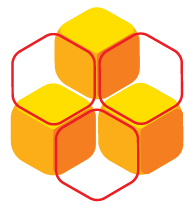Clientele and Industry Use Cases
Polytree's past & Current Clients
Industry Use Cases:

Supply Chain
A supply chain is a network which is established between a business and its suppliers. Blockchain promises to find a remedy to supply chain problems through the digitization of assets, products and shippment information. It allows for products to be tagged and assigned with unique identities which are then transplanted onto an immutable, transparent, and secure blockchain. Blockchain helps in tracking important product information such as the state of the product, shelf life, time, and location.
Consumers can verify the authenticity of purchased goods through a blockchain-enabled supply chain. Products can be accurately tracked across different locations and stages in a supply chain. This way, stakeholders will have the capability to isolate and tackle any potential issues.
IoT sensors with a variety of components to help manage inventory more efficiently. IoT systems can relieve manual tracking tasks from the workload of human employees, saving businesses money because fewer staffing hours will be spent tracking inventory.
Supply chain planning is a crucial activity for business operations. Having intelligent work tools for building concrete plans is a must in today’s business world. ML provides an endless loop of forecasting, which bears a constantly self-improving output. This kind of capability could reshape supply chain planning and warehouse management by ideentifying bottlenecks and and chokepoints in a dynamic fashion.

Healthcare
Blockchain will serve as a tamper-proof and secure datastore to alleviate problems faced in the healthcare industry. Patient medical records can be stored on a blockchain. This will make it significantly easier for medical practitioners to access a patient’s medical history. Blockchain also helps tag and track drugs at every stage of the supply chain. It will act as a medium to assure the authenticity of drugs. Patients will also have control over the data stored in the blockchain. Others can view their data only if the patients grant them permission to do so.
AI has the ability to analyze big data sets – pulling together patient insights and leading to predictive analysis. Quickly obtaining patient insights helps the healthcare ecosystem discover key areas of patient care that require improvement as well as makihng diagnosis analytics far more accurate.
IoT enables patient monitoring in real time, thus significantly cutting down unnecessary visits to doctors, hospital stays and re-admissions. It enables physicians to make evidence-based informed decisions and brings absolute transparency

Finance
Blockchain has proven to be useful for reduced friction costs in trading and cross-border payments. It has shown itself to be a strong technology upon which digital asset markets can be built to enable burgeoning markets of a new alternative asset class. It also can enable the digitization of traditional securities and assets such as commodities or property, so that these too can enjoy the benefits of digital trade and ownership.
Aside from this, blockchain brings the possibility of creating new and unique financial instruments and new forms of asset though smart contracts and programmable assets. These new assets can contain complex rules within their coded DNA to handle any sort of transaction necessary. An asset could lock itself if the debtor were to default on a loan payment, or it could sell itself triggered when a certain event occurs or a certain price in met. The possibilities and usefulness are truly limitless.
AI has a well founded place within the financial sphere. From market analysis, to trade strategy, to portfolio and capital management, AI has shown to be an invaluable tool for mitigating risk and maximizing trade efficiency.





